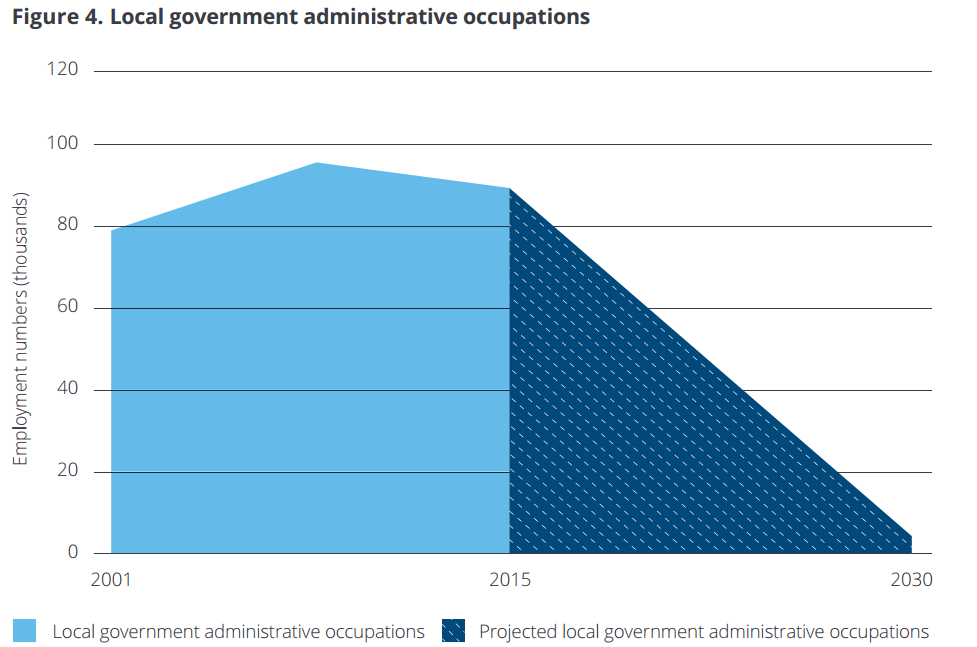Automation to destroy 860,000 UK Public Sector Jobs By 2030
Whereas dystopian representations of the future have traditionally focused on killer robots, most developed countries are currently facing the impending reality of a significantly smaller job market and a shrinking workforce with entire job sectors being taken over by automated solutions.
A study carried out by Oxford University and Deloitte, a business advisory firm, has found that 860,000 public sector jobs in the UK could be lost by 2030 due to automation, saving some 17 Billion pounds annually in the process. Over 1.3 million administrative jobs in the public sector also have a 77% probability of being automated in the future.

Though the outlook is somewhat bleak for the job market, the consulting firm itself has published a report that in fact acknowledges that over the past 140 years automation has, thus far, created more jobs than it has displaced.The new report also highlights that there are clearly jobs that have a low probability of becoming automated, such as social workers and medical practitioners.
A decrease in the need for human labor could result in an increase in leisure time, with everyone set to benefit. A universal basic income would see all citizens of a state receive an unconditional basic income; a possibility that is being increasingly propagated by those who believe automation will eliminate traditional jobs at the same time as creative massive new wealth. A European Parliament draft report recently stated, in fact, that due to the possible effects on the labor market of robotics and AI, “a general basic income should be seriously considered,” the same directive inviting all member states to do so.
Meanwhile, Y Combinator, a prominent startup incubator based in Silicon Valley, is also set to run a pilot study of basic income in Oakland, California. In June this year, Switzerland even held a referendum on basic income. Though 77 per cent of voters voted against it coming into effect now, the referendum shows that it is a very real consideration for the future.
Despite the positive and negative implications of automation, these changes will undoubtedly take a great deal of time, both machine & human labor, to cause the seismic shift in our society that is being foreseen.
